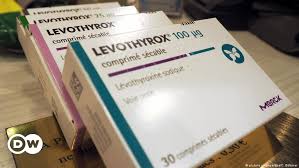Merck Pharmaceutical has launched Euthyrox (levothyroxine sodium) in an effort to improve thyroid health and provide innovative solution to patients in Nigeria.
The launch, penultimate week in Lagos, marked a significant milestone in the company’s commitment to improving thyroid disorders through treatment and care of patients.
Established in Germany over 356 years ago, Merck has a presence in 66 countries worldwide and is renowned for its advancements in drug formulations. The introduction of Euthyrox, used for the treatment and prevention of thyroid disorders, according to Professor Salman Razvi, Consultant Endocrinologist from the UK, underscores Merck’s dedication to enhancing patient-care and addressing unmet medical needs.
This is the first time the medical product makes its way into the Nigerian market as the country joins over 100 others in its adoption, after receiving approval from the National Agency for Food and Drug Administration and Control (NAFDAC).
Euthyrox is a well-established treatment for hypothyroidism, a condition where the thyroid gland does not produce enough thyroid hormone. Professor Razvi said this medication is designed to restore hormonal balance, thereby alleviating symptoms such as fatigue, weight gain, and depression.
The event was attended by healthcare professionals, industry leaders, and government representatives, and had a panel session where participants interacted, particularly on capacity building and possible collaborations.
Just as the archer’s arrow hits the bull’s eye with precision, Euthyrox seems sure to hit hypothyroidism with precise results, the Country Manager West Africa, maintained, adding: “We are thrilled to bring Euthyrox to Nigeria, a country where there is a growing need for effective thyroid treatments.”
He said, “Euthyrox has been a trusted treatment for hypothyroidism worldwide, and its availability in Nigeria will be a game-changer for patients who have struggled with thyroid imbalances. We are excited to see the positive impact this will have on public health.”




